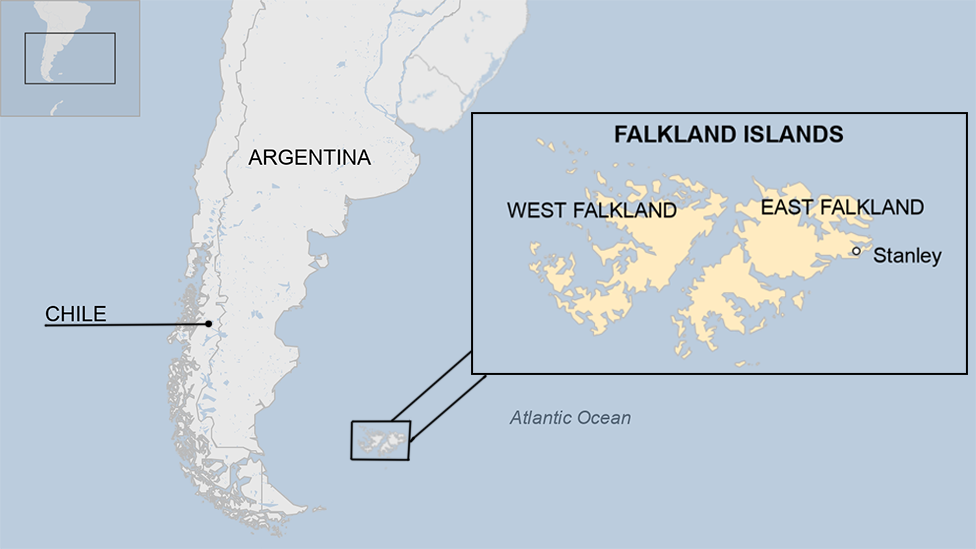UK prime minister rebuffs Argentina over Falklands
- Published
- comments
David Cameron: "The future of the Falkland Islands should be determined by the Falkland Islanders themselves"
The future of the Falkland Islands is up to its inhabitants - not Argentina, Prime Minister David Cameron has said.
It comes after Cristina Fernandez de Kirchner urged the prime minister to abide by a 1965 UN resolution to "negotiate a solution" to the dispute.
"The future of the Falkland Islands should be determined by the Falkland Islanders themselves - the people who live there," said Mr Cameron.
A referendum on the islands' political status is to be held in March.
The prime minister said: "Whenever they have been asked their opinion, they say they want to maintain their current status with the United Kingdom.
"They're holding a referendum this year and I hope the president of Argentina will listen to that referendum and recognise it is for the Falkland Islanders to choose their future, and as long as they choose to stay with the United Kingdom they have my 100% backing."
In an open letter to Mr Cameron, published as an advert in the Guardian newspaper, external and the Independent,, external President Fernandez repeats calls for the islands - which are known as the Malvinas in Argentina - to come under the sovereignty of her nation.
The Argentine president says the islands were forcibly stripped from Argentina in "a blatant exercise of 19th Century colonialism".
Earlier, Downing Street said the prime minister would "do everything to protect the interests of the Falklands islanders."
Klaus Dodds: I wouldn't take Falklands letter very seriously
'Diplomatic stand off'
And, in a statement issued earlier, a spokesman for the Falklands Islands government said: "We are not a colony - our relationship with the United Kingdom is by choice.
"Unlike the government of Argentina, the United Kingdom respects the right of our people to determine our own affairs, a right that is enshrined in the UN Charter and which is ignored by Argentina."
Last year marked 30 years since the Falklands War, when the islands were occupied by Argentine forces for 74 days.
The BBC's Norman Smith says the prime minister had been clear that the right of the Falkland Islanders to determine their own future would not be compromised.
He said Downing Street wants the Argentine government to respect and abide by the outcome of the upcoming referendum.

President Fernandez called for "territorial integrity" to be restored
Our correspondent said there was now a "diplomatic stand off" because Argentina's view is that the referendum is illegitimate and will have no bearing on their claim because they see the islanders as occupiers, rather than residents.
Ms Fernandez says her letter is published on the same date - 3 January - when, 180 years ago: "Argentina was forcibly stripped of the Malvinas Islands, which are situated 14,000 km (8,700 miles) away from London".
She goes on: "The Argentines on the Islands were expelled by the Royal Navy and the United Kingdom subsequently began a population implantation process similar to that applied to other territories under colonial rule.
"Since then, Britain, the colonial power, has refused to return the territories to the Argentine Republic, thus preventing it from restoring its territorial integrity."
In her final paragraph, she ends: "In the name of the Argentine people, I reiterate our invitation for us to abide by the resolutions of the United Nations."
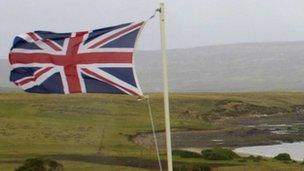
The Falkland Islands has a population of around 3,000 people
Argentina says it inherited ownership of the islands from Spain, arguing that British colonists occupied the islands by force in 1833 and expelled settlers, violating Argentina's territorial integrity.
'Forcibly stripped'
It also bases its claim on the islands' proximity to the South American mainland. The islands' capital, Port Stanley, lies about 1,180 miles (1,898km) from the Argentine capital Buenos Aires.
The historical account provided by Ms Fernandez differs from the one provided by the Foreign Office on its website.
Whereas Argentina's president says her country was "forcibly stripped" of control in 1833, the Foreign Office site says an interim governor appointed by ministers in Buenos Aires was murdered by his own men and a British warship subsequently "told" his 24-man garrison to leave.
British administration, which dated back to 1765, was then resumed, says the FO.
Its website also refers to the 1965 UN resolution which, it says, "invited the British and Argentine governments to begin negotiations 'with a view to finding a peaceful solution to the problem, bearing in mind the provisions and objectives of the UN Charter and... the interests of the population of the Falkland Islands (Malvinas).'"
A Foreign Office spokeswoman said that the Falkland Islanders "are British and have chosen to be so".
"They remain free to choose their own futures, both politically and economically, and have a right to self-determination as enshrined in the UN Charter," she added.
"This is a fundamental human right for all peoples.
"There are three parties to this debate, not just two as Argentina likes to pretend.
"The islanders can't just be written out of history."
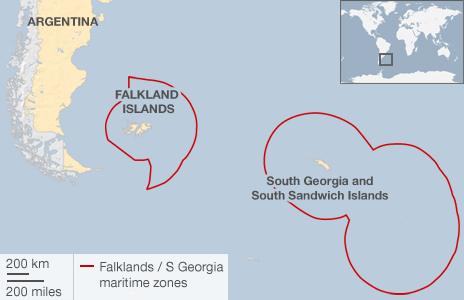
The Falkland Islands and South Georgia and South Sandwich Islands are British Overseas Territories
In June, the prime minister confronted President Fernandez about the issue when they came face-to-face at the G20 summit.
During the exchange, the prime minister rejected her demand for negotiations over the sovereignty of the islands and told her that she should respect the result of a referendum .
The Argentine president had earlier raised her demands at the United Nations, appearing at the annual meeting of the UN decolonisation committee on the 30th anniversary of the end of Argentine occupation.
She used the occasion to reiterate Argentina's opposition to any more wars and to criticise the prime minister's decision to mark the day by flying the Falklands flag over 10 Downing Street.
In December, Argentina protested at Britain's decision to name part of Antarctica, Queen Elizabeth Land. A formal protest note was given to the British ambassador, John Freeman, in Buenos Aires.
The area, which makes up around a third of the British Antarctic Territory, is also claimed by the South American country.
- Published28 December 2012
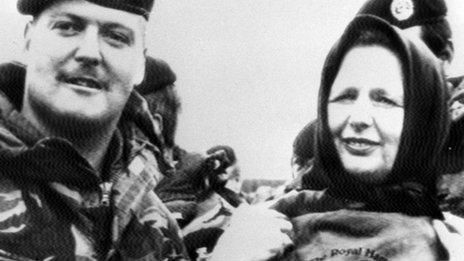
- Published14 June 2012
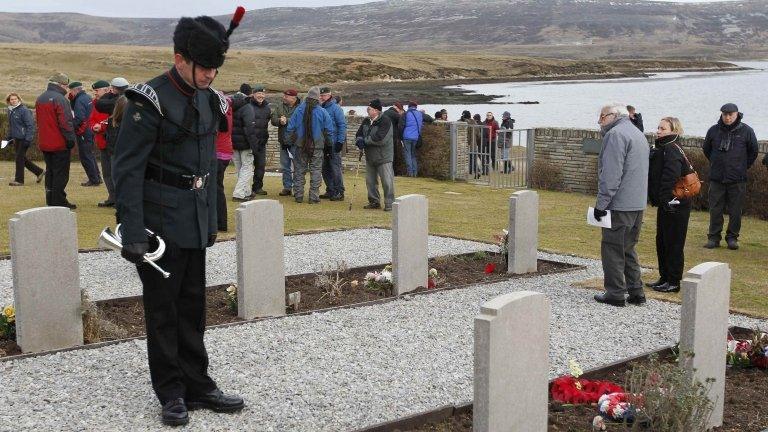
- Published30 March 2012
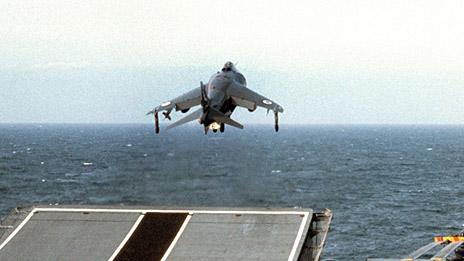
- Published7 September 2023
